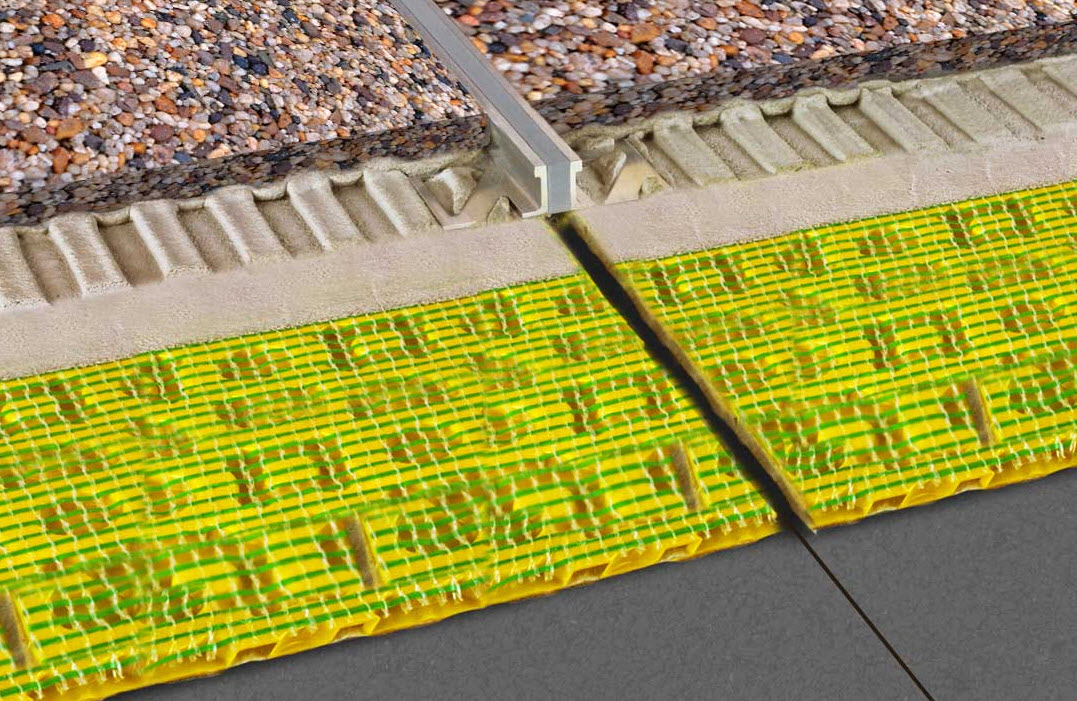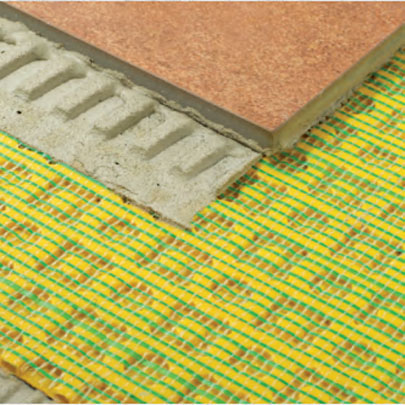Particularly safe, extremely fast, noticeable cost saving - 3 mm thickness
CI++ Load Capacity - 5,000kg/m (= 5 tonnes or 50kN/m2).
-
Construction optimized 3-layer structure
-
Stress alleviating and crack-bridging
-
Improves footfall sound insulation
-
Saves time and money
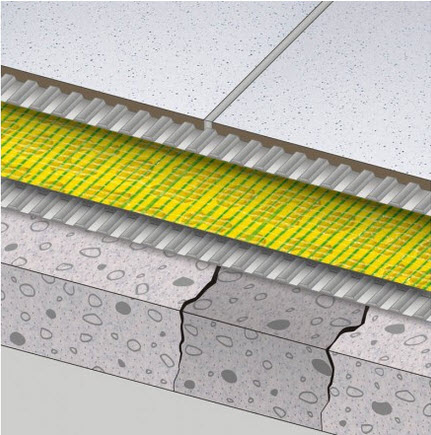
Waterproofing/Decoupling - Safe protection from below
More advantages:
-
Higher bending strength of the flooring construction
-
No roll-off effect
-
Easy to handle
-
Optimal adhesive bonding between the mat and the subfloor
-
Minimization of shear stress through active fibre fleece fabric
-
Matching accessories
Dural decoupling mat DURABASE CI ++

Construction optimised 3-layer structure
Mesh fabric
-
Higher bending strength of the flooring construction – stable flooring.
-
Better adhesive bonding between the mat and the thin-bed mortar.
-
No roll-off effect – the tile adhesive does not roll off when it is spread across the dimpled structure.
-
Highly resistant to mechanical loading.
Geometry of the dimples
-
The optimised shape of the dimples results in a significant reduction in the amount of adhesive required.
-
Improved equalization of water vapour pressure.
-
Optimised adhesion.
Fleece fabric with active fibres
-
The active-fibre fleece increases the adhesion surface area and guarantees optimal adhesive bonding between the mat and the subsurface.
-
The reinforced material of the fleece fabric minimises shear stresses.
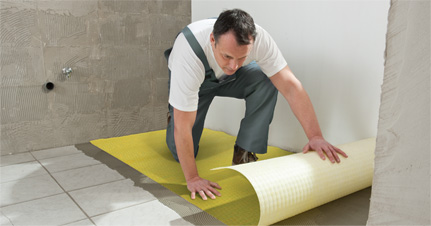
Advantages for tile fitters and floor layers
-
Bridges cracks and alleviates stress
-
Functions as waterproofing in indoor applications
-
Highly resistant to mechanical loading
-
Faster laying, thanks to easier spreading of the adhesive
-
Less adhesive is required, thanks to the optimized shape of the dimples
-
Easy to handle and unroll – CI++ moulds itself to the floor (is not stiff)
-
Improved transfer of loads, in line with DIN 1055-3
-
Improves footfall sound insulation
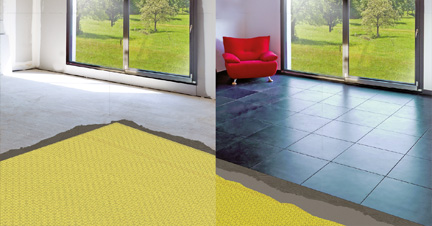
Applications
Freshly-laid mineral subfloors
-
Cement screed
-
Calcium sulphate screed
-
Concrete
Subfloors subject to plastic deformation
-
Old synthetic flooring
-
Mastic asphalt screed
System floors
-
Double floors
-
Raised floors
Outdoor flooring
-
Balconies
-
Patios
-
Verandas
Problematic subfloors
-
Cracked subfloors
-
Mixed-material subfloors
-
Wooden subfloors
-
Heating screed
-
Dry screed
-
Metal subfloors
Large-format tiles
-
e.g. > 50 x 50 cm sufficiently thick and fracture resistant. No thin tiles – as these could break)
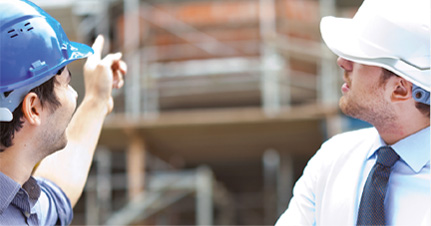
Advantages for architects, design engineers and developers
Time is money: CI++ allows tiles to be laid as soon as the subfloor can be walked on
In real-time, this means:
-
A time saving of around 3 to 4 weeks for cement screeds and calcium sulphate screeds – tiles can be laid after just 3 or 4 days
-
A time saving of around 3 to 4 months for concrete, depending on the quality – tiles can be laid after just 2 months or so (as opposed to 6 months)
